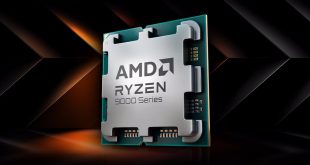Having presided over one of the most successful periods ever in Intel's history, Paul Otellini will take a sip of water and step onto the stage at IDF 2011 with uncertainty on his mind. His keynote is entitled “The Evolution of Computing: Looking Ahead”, but how much time will he spend on the really serious issue facing chip manufacturers?
Life's simple certainties, like 1 + 1 = 2, can be challenged when you get too far into the detail. People purporting to provide a proof for this kind of ‘so simple any 4 year old can master it', seem to do so in terms so complex that normal people can't be sure the proof is actually there.
Has KitGuru been at the special sauce before breakfast?
Nope. Not at all.
We've actually been considering a conversation we had with an Intel engineering expert recently.
The topics varied greatly, but one thing became very clear. As the world moves toward 7nm technology and beyond – it's becoming an altogether less certain place to live in.
Searching for Intel and Uncertainty on Google, today, and you will find a variety of articles on share prices, shipment figures and chipsets. Nothing obviously about future Intel (and AMD) CPUs struggling to keep the 1 + 1 = 2 principal together at the very lowest levels within future processors.
But that's what KitGuru has been told. We're living in the last days of certainly when it comes to internal, low-level calculations within CPUs. The future will be all about managing increasing levels of uncertainty.

Certainly the human brain spends its whole time in a state of chemical and electrical flux – and human life, overall, is more about managing uncertainty and making good guesses based on experience and available data, than anything else. But it makes us all a little nervous to think that the computers (and, therefore, robots) of the future will be living similarly fluid lives.
A recent Nordic Hardware article touched on this issue, when quoting Bhagawan Sahu of the University of Texas in Austin. While confirming that next-generation Graphene transistors have already been made to switch at more than 150GHz, this research genius also confirmed that Graphene struggles to return to a zero state.

KitGuru says: Whether Intel and its competitors will run with Graphene, germanium or something even more exotic, one thing is for certain: Tons of research will be directed at this whole area of living with uncertainty in a future that's geared to be running more data than ever through ultra-fast, ultra-small processors. Anyone care to guess when the traditional concept of Babbage's Difference Engine will be replaced with an Uncertainty Engine? Let's see if Paul Otellini nails this in the morning.
Comments below or in the KitGuru forums.
 KitGuru KitGuru.net – Tech News | Hardware News | Hardware Reviews | IOS | Mobile | Gaming | Graphics Cards
KitGuru KitGuru.net – Tech News | Hardware News | Hardware Reviews | IOS | Mobile | Gaming | Graphics Cards



My whole life’s confusing, would be fun to have a PC that felt the same way 🙂